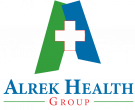Navigating Healthcare Staffing During Public Health Crises
Public health emergencies—whether caused by disease outbreaks, natural disasters, or global pandemics—place tremendous pressure on healthcare systems. Medical facilities and clinics often become overburdened as they face a surge in patient needs while also struggling with staffing challenges. In such situations, having adaptable and dependable healthcare staffing becomes vital. Agencies like Alrek Health Group help ensure continuous patient care even under the most demanding conditions.
One of the major challenges during public health crises is the sudden increase in patient volume. Intensive Care Units (ICUs), emergency rooms, and specialized treatment centers frequently experience sharp spikes in cases. Regular staff can quickly become overwhelmed, leading to fatigue, burnout, and potential gaps in care. This is where organizations specializing in travel nurses, locum tenens physicians, and allied health professionals play a crucial role. They supply trained and vetted healthcare workers at short notice, helping sustain care and relieve the burden on overwhelmed hospital teams.
Beyond simply filling open positions, strategic staffing ensures that healthcare teams operate effectively under pressure. Skilled professionals can be integrated swiftly into existing teams, bringing expertise that strengthens the capabilities of permanent staff. This seamless integration is especially critical during emergencies, when every moment matters and errors can have serious consequences. By partnering with staffing agencies such as Alrek Health Group, healthcare organizations gain not just additional staff, but experienced experts who are flexible, knowledgeable, and prepared for high-intensity environments.
Public health emergencies also highlight the need for flexibility in workforce management. Hospitals may require staff for specific shifts, specialized departments, or extended periods depending on the severity of the crisis. Staffing firms are equipped to meet these evolving demands by offering tailored solutions that support each facility’s operational needs. This flexibility allows hospitals to maintain high-quality care without the long-term commitments of hiring permanent employees during stressful periods.
Another essential component of crisis staffing is reducing disruptions to patient care. Healthcare organizations cannot afford treatment delays, missed procedures, or gaps in monitoring. Staffing agencies help maintain seamless care across departments, which is vital not only for patient outcomes but also for preserving trust and confidence among patients and their families during uncertain times.
Crisis staffing needs extend beyond hospitals as well. Nursing homes, rehabilitation centers, and outpatient clinics also face significant staffing challenges during public health emergencies. Organizations like Alrek Health Group support these facilities by providing trained professionals who meet regulatory standards and possess the skills needed to deliver safe and effective care. This broad coverage ensures that communities continue to have access to essential healthcare services even when traditional staffing systems are strained.
In conclusion, managing healthcare staffing during public health emergencies requires a forward-thinking, adaptable, and reliable approach. Agencies such as Alrek Health Group play a vital role by supplying qualified personnel, supporting overwhelmed staff, and ensuring continuity of care across multiple healthcare settings. As healthcare demands continue to evolve, effective staffing strategies remain crucial to maintaining patient care and strengthening system resilience during challenging times. Partnering with a trusted staffing agency not only enhances a facility’s capabilities but also protects the communities they serve—proving that effective staffing is not just a logistical requirement, but an essential component of public health preparedness.
